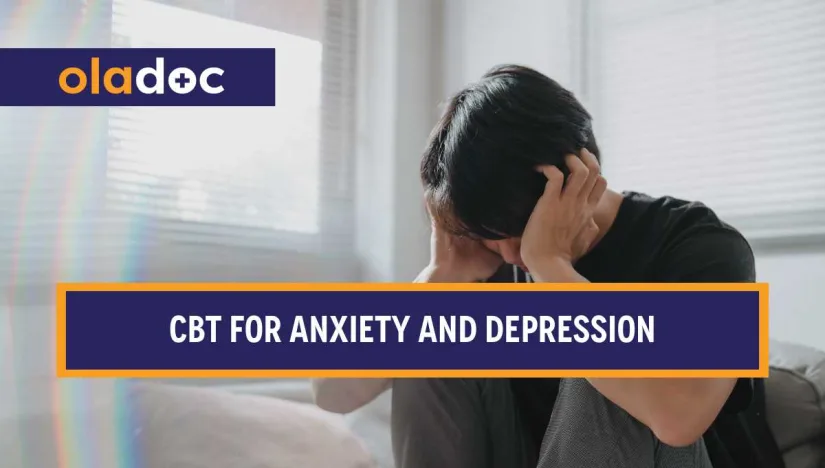Cognitive behavior therapy (CBT) is an effective treatment method for various mental and emotional health matters, such as anxiety and depression.
CBT helps you identify and challenge unhelpful thoughts while teaching practical strategies that can quickly improve your quality of life.
CBT may help anyone struggling with negative thoughts that hold them back from reaching their goals or living the life they want.
Table of Contents
Key Takeaways
- CBT addresses the relation between your thoughts, feelings, and behaviors.
- It will help you challenge illogical thinking, helping you engage in positive behaviors.
- CBT gives individuals coping tools that can help them cope with future challenges and build resilience.
How Does CBT Work?
Cognitive Behavioral Therapy (CBT) operates through assisting individuals in identifying the relationship between thoughts, feelings, and behavior.
CBT emphasizes identifying negative or distorted patterns of thinking that lead to anxiety or depressed mood, challenging those symptoms with rational and evidence-based thinking, and ultimately modifying those thoughts into more balanced and realistic ones.
In addition to cognitive restructuring, CBT also employs behavioral strategies such as behavioral exposure and the use of problem-solving skills to motivate behavior that promotes positive mood.
CBT for Anxiety
Cognitive Behavioral Therapy (CBT) is effective for anxiety because the therapy focuses on thought patterns and behaviors that cause excessive worry and fear.
CBT aids in determining and challenging thoughts that are unreasonable or exaggerated, like thinking the worst will happen, and replaces them with more balanced thoughts.
CBT incorporates gradual exposure to the feared situation on the behavioral side so that the person no longer avoids the situation and learns to manage their fears.
Lastly, CBT also provides the individual with relaxation strategies, coping strategies, and problem-solving skills that lower the physical symptoms of anxiety and help them resume their day-to-day activities normally.
CBT for Depression
People with depression often feel persistently negative about themselves, others, and the world. This pattern of thinking can become automatic, so you might not even recognize when your judgment is irrational or unfair to yourself.
Cognitive behavior therapy (CBT) can help individuals overcome depression by providing them with strategies to challenge negative thinking and replace it with more realistic and positive thinking.
CBT is also used to help many more psychological problems. In some instances, it may be suggested that other types of therapy be used at the same time to achieve the best results.
Steps Involved in Cognitive Behavioral Therapy
The specifics of treatment will vary according to your issue, but CBT usually includes some of the following steps:
1. Assessment and Goal Setting
The treatment begins with identifying the individual’s symptoms, problems, and personal goals, which helps in developing a structured treatment plan that is responsive to their needs.
2. Identifying Negative Thought Patterns
The patient learns to identify automatic negative thoughts that may be contributing to their anxiety or depression. Through the treatment, the thoughts are explored to determine their effect on emotions and consequent behavior.
3. Cognitive Restructuring
The therapist assists the individual in challenging an irrational belief, which can be replaced with balanced and realistic thinking, resulting in reduced negative thought patterns and self-criticism.
4. Behavioral Interventions
Behavioral strategies may include exposure therapy for anxiety or activity scheduling for depression.
5. Coping Skills and Preventing Relapse
In CBT, individuals learn coping skills to manage stress and reduce negative thinking.
Conclusion
Cognitive Behavioral Therapy (CBT) is a safe, effective, and evidence-based approach to treating anxiety and depression by altering unhelpful thoughts and behaviors.
It helps people develop coping strategies enabling them to break the cycle of negativity, enhance emotional well-being, and improve the quality of their life.
Frequently Asked Questions (FAQs)
CBT takes around 5 to 20 sessions or longer, depending on the severity of your symptoms.
Yes, many individuals can benefit from CBT without medication, particularly those with mild to moderate symptoms.
Yes, CBT can be delivered in person, in groups, or online.

